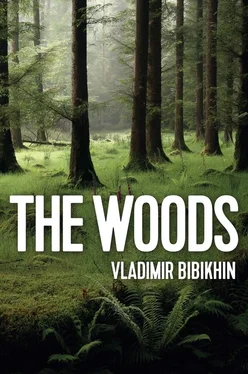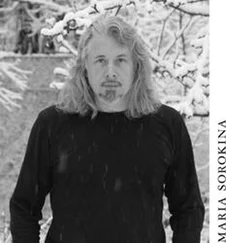1 ...7 8 9 11 12 13 ...31 Looking ahead, I will mention another way of talking about this osmotic quality of the forest: it is said to act like a drug, sometimes more, sometimes less powerful, depending on the experience. This power of the forest can be intimidating, and I will mention here a literary example to which we shall return: nausea, or perhaps more the sense of disorientation at sea, which the narrator of Sartre’s La Nausée experiences in the vicinity of a tree or of tree bark. 11Another example is the experience described by Vasiliy Belov, where a great pine tree evokes a sense of reverence in the person felling it. 12We need not enumerate other instances because everybody has felt them at one time or another. There is nothing contrived or artificial about these; on the contrary, they are unexpected and amazing, but feel out of the ordinary only because our habitual ways of looking at the forest are utilitarian or aesthetic. How we came to develop that habit we need not go into, because much more interesting is how insecure it is, how ready to be displaced and to yield to the amazing experiencing of the forest.
A constant feature of the experience of the forest is how intimate it feels, even while it seems intimidating, as in Sartre or as in the figure of the wood demon. The fear that grips us in the forest is not of a kind that we can take practical measures against; it is too much a part of us. We find the demon seems to be within us and that what we fear in him is ourselves, different, altered. When the spirit of the forest is something we desire and are seeking, it feels near and dear to us.
The experience we have of our relatedness to the forest might seem to be pointing us towards the secrets of the sacred grove, through which initiation into the mysteries begins, and there is no call for us to rush to decide which interpretation, the philosophical or the gnostic, is better. Of one thing we can be sure, and that is that every interpretation will be lame, will flounder, which is precisely why a plurality of interpretations is needed. That is why I am so lacking in confidence when I say that the signs might seem to be pointing in a particular direction, and why I believe it is better to indulge that uncertainty. One thing that is clear is that Empedocles, and the ancients generally, were far more at home with and had a much better understanding of the forest than we do, and that their thinking may well include insights we will be hard pressed to keep up with. May these reflections on our experiencing of the forest serve for the time being only to let us see how unartificial this unfamiliar way of seeing, or intuiting, the forest is.
The second doubt hanging over our choice of topic, which some have already voiced, is why particularly wood, the forest, should be singled out. Why not also the meadow, the more so when there are studies on the links between the forest and the meadow? Or why not take as our topic water, earth, sky, the sea? Experiencing the sky or water is no less of an issue for us. We are captivated by the starry sky. Come to that, just about everything captivates us no less than the forest. The first answer is that the earth which Xenophanes saw as infinite, the water which Thales saw as the first principle, could have established themselves in philosophical thought as primal matter, materia, but did not. 13The fact is that it was wood, hyle, the forest, that was adopted, and it is another question whether that came about before or after Aristotle. Perhaps it was an accident and came about simply because Aristotle, while lecturing, was looking for an example of what material eidos, form, is made of and took the nearest object to hand, which happened to be a wooden table. He had a concept for which he needed a name. The name reaches out towards the concept and acquires content. Content is the giving of form to the formless or, in this case, since wood is not formless, to something whose form is of no importance and can be used to provide a foundation for form that is of importance. Form puts its imprint on what it will, on a basis of matter: you can saw a piece of wood and form from it anything you like. This is a traditional and ostensibly philosophical commonplace, but we are about to say goodbye to it forever, because the much-vaunted indefiniteness of matter is going to prove to be its fundamental indefinability.
It is intriguing that the choice of wood to designate primal matter is at least partly due to a connectedness with the forest that we do not have with water, sky, or earth: that we seem, not so long ago in geological terms, to have been covered in vegetation but are so no longer. Something akin to deforestation has happened to us, and it is the destruction of the forests that is presently so alarming us on our planet.
Quite apart from whether the human species really is Desmond Morris’s ‘naked ape’, 14whether it ever was hairy and, if so, when it stopped being hairy, what is phenomenologically of value to us is that the experience of being hairy is simultaneously inaccessible to us and very close. We can readily imagine what it would be like to be hairy, although, if we imagine ourselves hairy, it is ourselves we are seeing as hairy, our real selves except, perhaps, for our consciousness. 15The original hairy human’s consciousness must surely have been different, primal, although the primitive mind was not necessarily crude and underdeveloped, something to be despised. On the contrary, we are curious and feel it is relevant to us. We can see that in the anthropology of Lévi-Strauss, in William Faulkner’s The Sound and the Fury, and in all our scientific and artistic reconstructions. 16
There is no need for us, in the interests of the integrity and reliability of our work, to start vexing ourselves over whether humans were ever hairy, or speculating about the nature of primitive consciousness. What is of significance for us, though, is the presence in the human experience of primitive tribes, their presence in the thinking of people like Jean-Jacques Rousseau, in the arts, in writing (for example, in C.S. Lewis, who imagined a sweet-natured, hairy primal human being, a wise superman – the snow man in the American film Bigfoot evidently draws on Lewis), an alternative human being whom we find familiar and acceptable, who is more a creature of the forest than we are, partly because of his hairiness, partly because of his categorical refusal to fell trees, and partly because he lives in the forest.
Today’s urbanized and technologically minded people keep the forest at a distance, enjoying its wonders in measured doses that pose no risk to health: enjoying the countryside, going for a stroll in the park. The forest, however, precisely because it is pushed back, eats its way into humanity ever more vengefully and irrevocably. It is as if humankind has failed to make its peace with the forest and now it is payback time. I do not think it unreasonable to see tobacco, wine, and drugs as the forest’s revenge, tightening with its juices, poisons, and smoke the grip it has on humanity. The modern city has no escape from the forest, which reaches out after it through the power of its alcohol, tobacco, and cocaine. With these so much in evidence, we can see that the ancient religions and civilizations have lost none of their power. In using cocaine, individuals tear down the fence artificially separating them and surrender to their authentic element, the forest, to shamanism and fire. Of course, they are thereby desperately flinging themselves headlong into the fire, but that results from something that has built up over a long period during which they artificially separated themselves from the forest, from its matter.
I emphasize that we need to refrain, in the interests of good order, from any attempt to resuscitate the benign hairy human. Our focus is only on what there is today and constitutes our phenomenology. Whether we fear the hairy hominid or feel drawn to it, we are different. We are confronting a different consciousness, which it is impossible to imagine, reconstruct, or compute, but with which, in some strange way, it is entirely possible to conduct mental experiments.
Читать дальше












